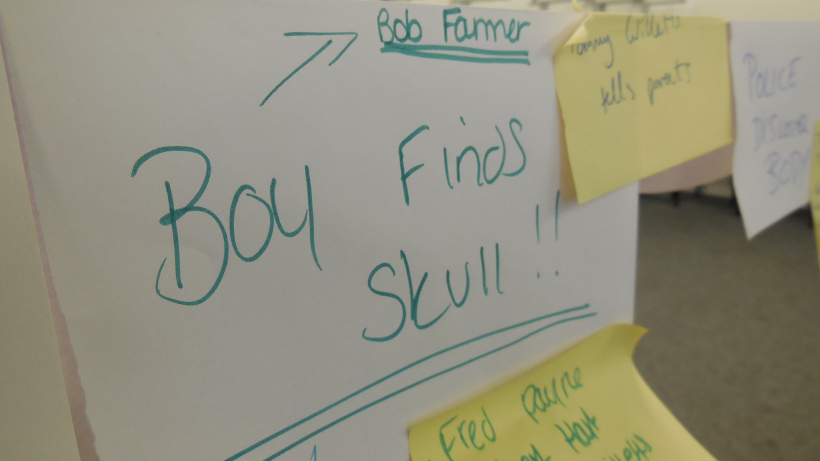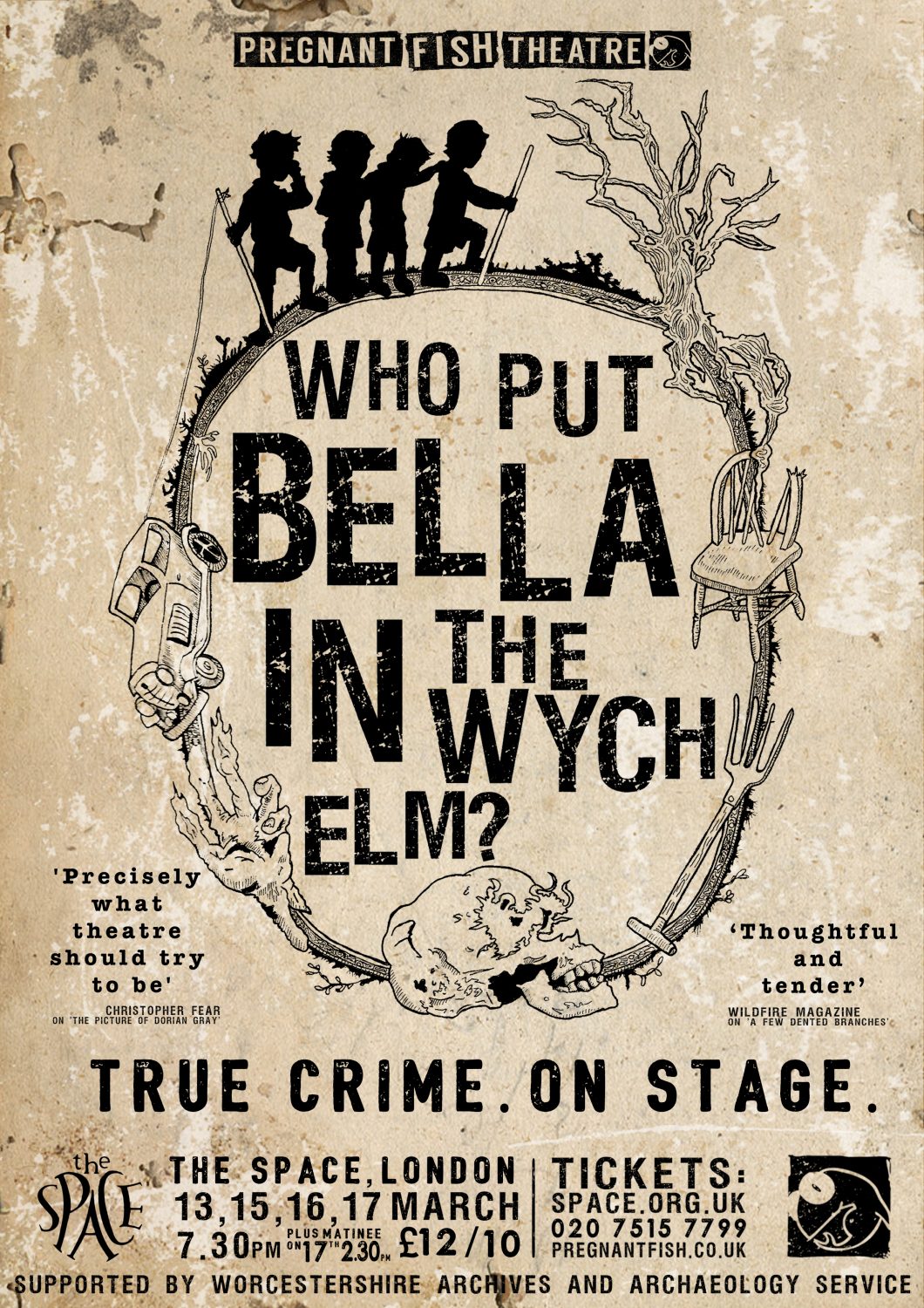Bella in the Wych Elm on Stage
- 17th August 2018
The case of ‘Who Put Bella in the Wych Elm?’ is one that continues to intrigue people 75 years after the remains of a body were discovered by some boys in Hagley Woods. The story has many aspects which ensure it catches the imagination – an unnamed body, a mutilated corpse, possible witchcraft, WWII espionage rumours and graffiti which hints at someone knowing more about the case than the police do. You can read more about the case in previous blogs here and here.

The tree where the body was found
The West Mercia police archives are held here and we get people coming to us to view this case, perhaps hoping to find a clue to reveal who the victim was or even the murderer. It has been the subject of articles, books and a film. This year it was also turned into a play and performed in London.

One of the letters in the police archive
Pregnant Fish Theatre were looking for a real life crime case to use. They are a theatre company based in London but comprising of former Worcester University students. The members had been listening to true crime podcasts, including cold cases, and were keen to see if they could turn this subject matter into a theatrical performance. Once they decided on the general topic they needed to find a story. During their time in Worcester they had heard about Bella, and were reminded of it again when the case cropped up on one of the podcasts they listened to. Like many others they were intrigued by the mix of true story, WWII, witchcraft, spies and mythology, as well as being in an area they knew. Another plus was that the archives were available to view.

Notes were used in rehearsals to try to help try to bring everything together to help with the storyline
It was very important to them to do the research themselves, and go through the files so they felt they knew the documents. On their blog they went through the process of turning the story, which at the heart consists of lots of documents in the police archive, into a play. It was interesting for us as custodians of documents to hear about the creative process of translating this into a coherent story and one which can be performed to people who may know nothing about it. In addition to presenting the facts they also looked at using them to inspire scenes too. Like the rest of our collections, we provide access to them and then they are used in numerous ways.

Pregnant Fish Theatre were worried about how the case would translate into a play as it is a very physical piece, whilst the sources are written documents. It is one thing to do a documentary or podcast and another to do theatre, so they needed to see what worked whilst staying true to the documents. They spent time researching and then going back to experiment with how they might portray the documents and the symbolism used, and how they might take the audience through a journey going through the archives in the play. Test performances were staged to help generate feedback and see how it would be received by an audience, which they then used to refine it. They even met a descendent of someone involved in the case that they were able to speak to. The final version was performed in London, where most members of the group are based. It went really well, with audience members really enjoying it. They are now hoping to stage it in the Midlands, where the original story happened, and they are in discussion with local theatres.
A workshop was later run for other theatre groups about their experiences of using archives, to share what they had learnt. They admitted they didn’t know what they were doing at first as it was so different. However they were able to share the process of trying out different approaches to find the best way, including test performances, and this may inspire other groups to use archives as the basis for future productions.
We’re always interested in the many creative ways the resources we hold here can be used. We hope that it will be brought to the Midlands so we can go along and see the performance.
If you’re looking for creative inspiration we have another 12 miles of archives with possible material!
Find out more about Pregnant Fish through the links below
www.facebook.com/pregnantfishtheatre
Post a Comment